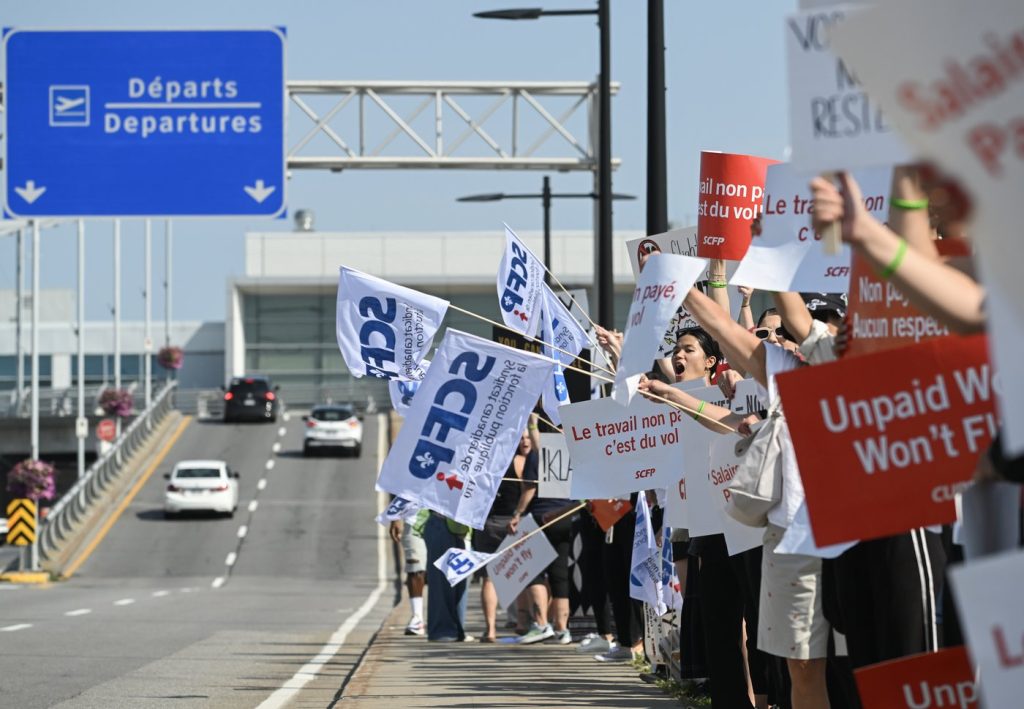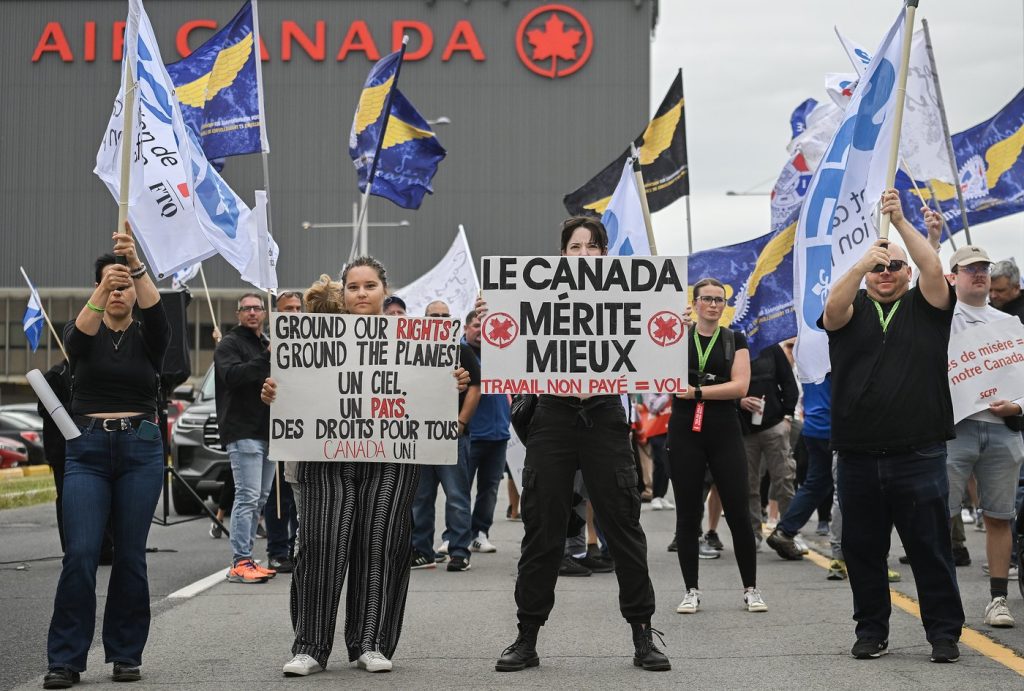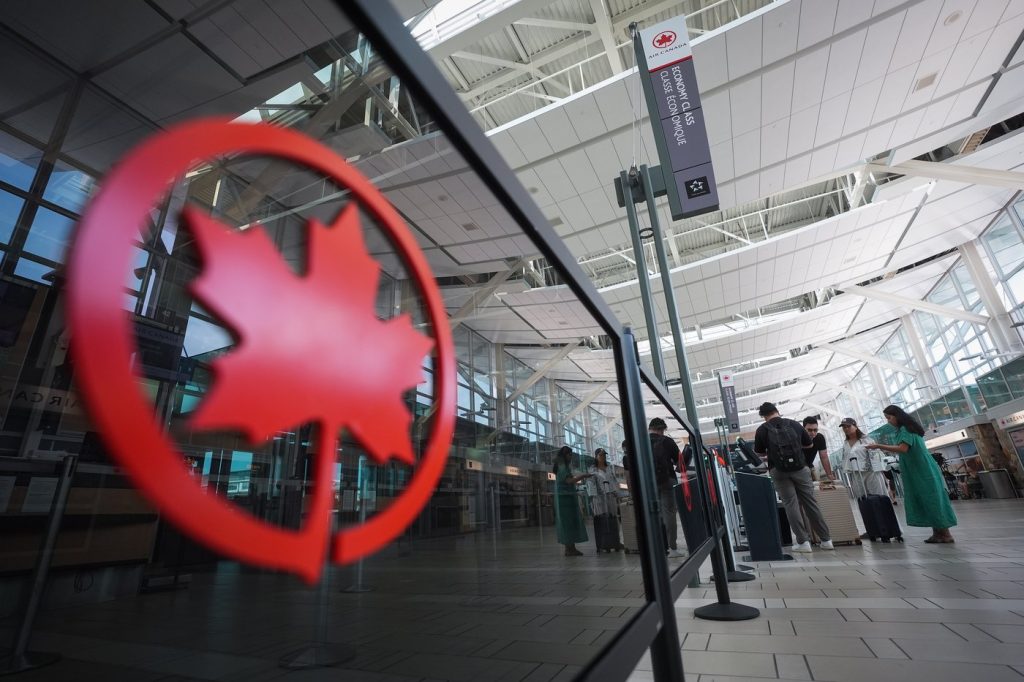On Saturday, air travelers across Canada faced significant disruptions as the federal government mandated binding arbitration amid a labor dispute between Air Canada and its 10,000 striking flight attendants. The strike initiated just before 1 a.m. ET has resulted in hundreds of grounded planes and extensive flight cancellations, prompting chaos at major airports.
At Toronto Pearson International Airport, passengers whose flights had been canceled arrived in hopes of obtaining rebooking options from Air Canada. Tanya Baron, visibly upset, expressed frustration over the lack of assistance as her family struggled to return home to Saskatoon. “They send us here, they send us there. They tell us to call a number where no human ever answers,” she lamented, highlighting a systemic failure in customer support.
Noel Nemeth, attempting to return to Edmonton, articulated a sense of helplessness, stating, “Patience is a virtue I guess.” Both he and Baron echoed a broader sentiment of uncertainty among affected travelers as they awaited information on potential solutions.
In response to the escalating situation, Jobs Minister Patty Hajdu instructed the Canada Industrial Relations Board to facilitate negotiations in a bid to restore operations. During her announcement, she cautioned that normal flight services may not resume for an estimated five to ten days. By Saturday evening, Air Canada had confirmed that both their flights and those of Air Canada Rouge would remain suspended pending the arbitration's outcome.
Despite the tumult, some passengers managed to secure alternate travel arrangements. Sandra Caputi, who had just flown in from Greece, successfully booked a competitor airline flight with Porter Airlines to return to Thunder Bay, Ont. She mentioned the effort required to find viable options, stating, “I asked probably about 10 different people until I got the answer I wanted.”
In Montreal, Bonnie Bradley faced a different reality as she learned that no flights were available until Wednesday. Determined to return home to Winnipeg after a holiday in Newfoundland, she opted for a road trip, stating, “Conveniently we have camping equipment with us, so we’re gonna camp on our way home.” Despite her own inconvenience, she expressed sympathy for the striking flight attendants, asserting that “nobody should have to work unpaid,” and criticized Air Canada for its management of the situation.
Another affected traveler, Monique Cardoso, arrived in Montreal from Lisbon with plans for a relaxing layover before returning to Vancouver. Instead, she and her family found themselves scrambling to explore new flight options. “We were supposed to spend the day here, and have one last, fun day in Montreal, and then go home,” she noted, revealing the disappointment experienced by many travelers. Her connecting flight was still on schedule but, given the circumstances, she felt compelled to be prepared for last-minute changes.
Dmytro Okopmyi, seeking to return to Halifax after visiting Toronto, reported that the airline had not communicated any rebooking options, leaving him anxious about financial implications. “They tell us we can get a refund (for our tickets) which would probably be $200, but to buy new tickets is probably going to cost around $1,800,” he explained, illustrating the stark contrast between refunds and current market rates for flights.
Air Canada had already canceled more than 600 flights over the preceding two days in anticipation of a potential work stoppage, resulting in over 100,000 travelers being affected as of Friday night. Amid the ongoing dispute, the airline's response has been scrutinized for its lack of preparation for the disruption.
This unfolding situation highlights the fragility of air travel in the face of labor disputes and the impact such disputes have on passengers caught in the crossfire.












